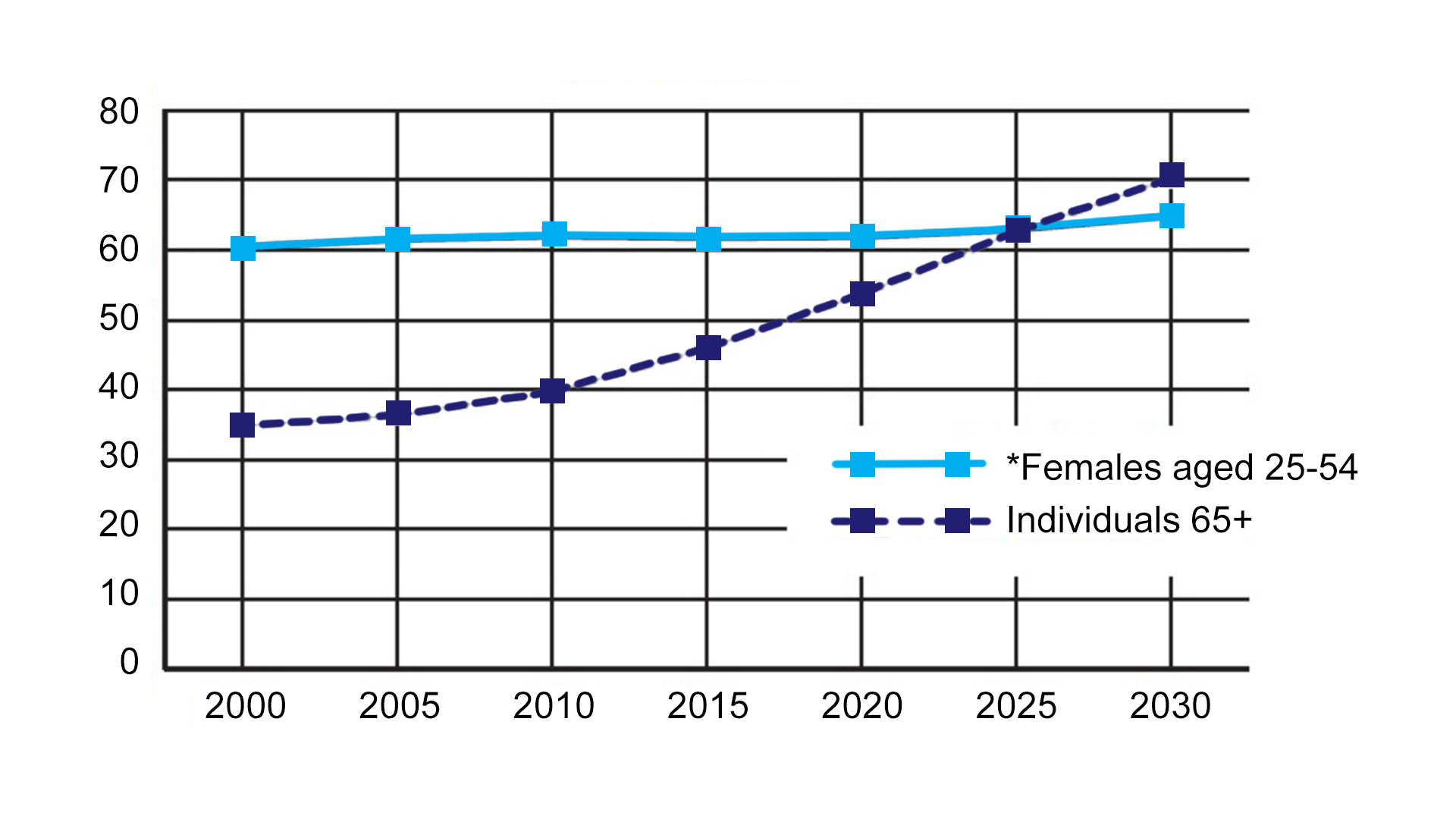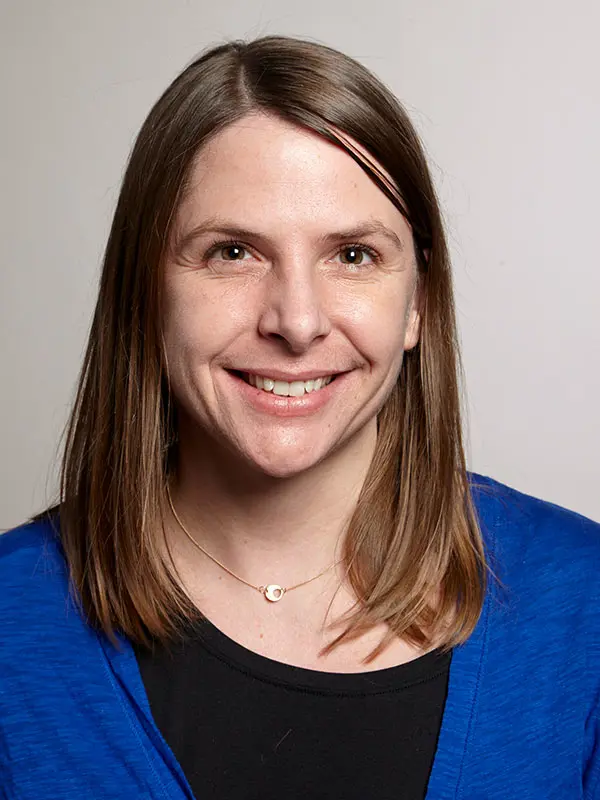Jennifer Reckrey, MD, has spent much of her career as a geriatrician and researcher thinking about ways to deliver quality care to people with dementia in the setting they most prefer: the community and home.
What Dr. Reckrey, Associate Professor of Geriatrics and Palliative Medicine at the Icahn School of Medicine at Mount Sinai, has learned is that the current reliance on family caregivers is unsustainable when weighed against the anticipated doubling in the number of cognitively impaired older adults in the United States by 2060.
Instead, she advocates a more prominent role for paid caregivers—with enhanced recognition, training, and responsibilities—as part of what she calls the “collaborative dementia care team.”
“Paid caregivers don’t detract from the role of family members in caring for an adult with dementia,” she says. “If anything, they afford another layer of support for children who are working or have their own children, or for spouses the same age who have health issues of their own. In these cases, paid caregivers are even more essential and allow family caregivers to engage more fully in other aspects of their lives.”

This chart shows the number of women of care-giving age and individuals 65 and over in the United States, 2000-2030 (in millions). By 2020, 1.2 million people aged 65 or older will have no living children, siblings, or spouse.
Source: Institute for Health and Aging; U.S. Census Bureau
The more than 6 million people living with dementia in the United States rely on an estimated 16 million family caregivers; they include spouses, children, and friends. Paid caregivers number an estimated 2 million, and include home health aides and personal care attendants, most with limited training. The paid caregiver workforce is paid out-of-pocket by individuals or families, or by Medicaid, though eligibility and covered services vary by state.
In a study in 2020, Dr. Reckrey found that only one in four community/home dwelling individuals with dementia received paid care, though for those with advanced dementia the coverage rose to half. Even when paid caregivers were present, family caregivers continued to provide a substantial number of care hours, confirming for the Mount Sinai researchers the importance of the collaboration between family and paid caregivers.
“Paid caregivers really make a difference for patients and their families, which is why we need to be training greater numbers, acknowledging more fully the contribution they make, and ensuring they get the appropriate compensation for the valuable support they provide to patients,” says Dr. Reckrey.
The need is equally great, she adds, to find ways to make paid caregiving more accessible across the income spectrum. In her study, she found that lower rates of paid caregiving among middle-income individuals suggested that this sector—which neither qualifies for Medicaid-funded home care nor has the means to pay for it out-of-pocket—faces a unique challenge. One possible solution posed by Dr. Reckrey is for Medicaid to increase its outlay for home and community-based services, thus bringing a wider pool of older adult patients and families into the fold.
She also thinks that models that bring together medical and long-term care may help meet the insatiable caregiver demand going forward. Consistent with that approach is a federal program known as PACE (Program of All-Inclusive Care for the Elderly). PACE provides a nursing home-level of care—with doctors, nurses, social workers, paid caregivers, and other providers—at a location within the community where older adults can gather during the day and return to their homes afterward. The program is offered in some states under Medicaid.
“My goal as a geriatrician is to keep people with dementia safe and well in the community for as long as possible,” says Dr. Reckrey. “That’s why we need to think hard now about strengthening the collaborative care team of family and paid caregivers, along with health care professionals, to make sure patients get the support they need.”
Navigating Dementia: A Mount Sinai Community for Caregivers is a private Facebook group that helps members find guidance and support from peers and our dementia experts. Caregivers are invited to join this new community in sharing, asking, listening, and learning. They will find practical tips, treatment ideas, medical expertise, encouragement, ongoing discussions, and hope for the journey. Click here to see the group.
Featured

Jennifer Reckrey, MD
Associate Professor of Geriatrics and Palliative Medicine at the Icahn School of Medicine at Mount Sinai
